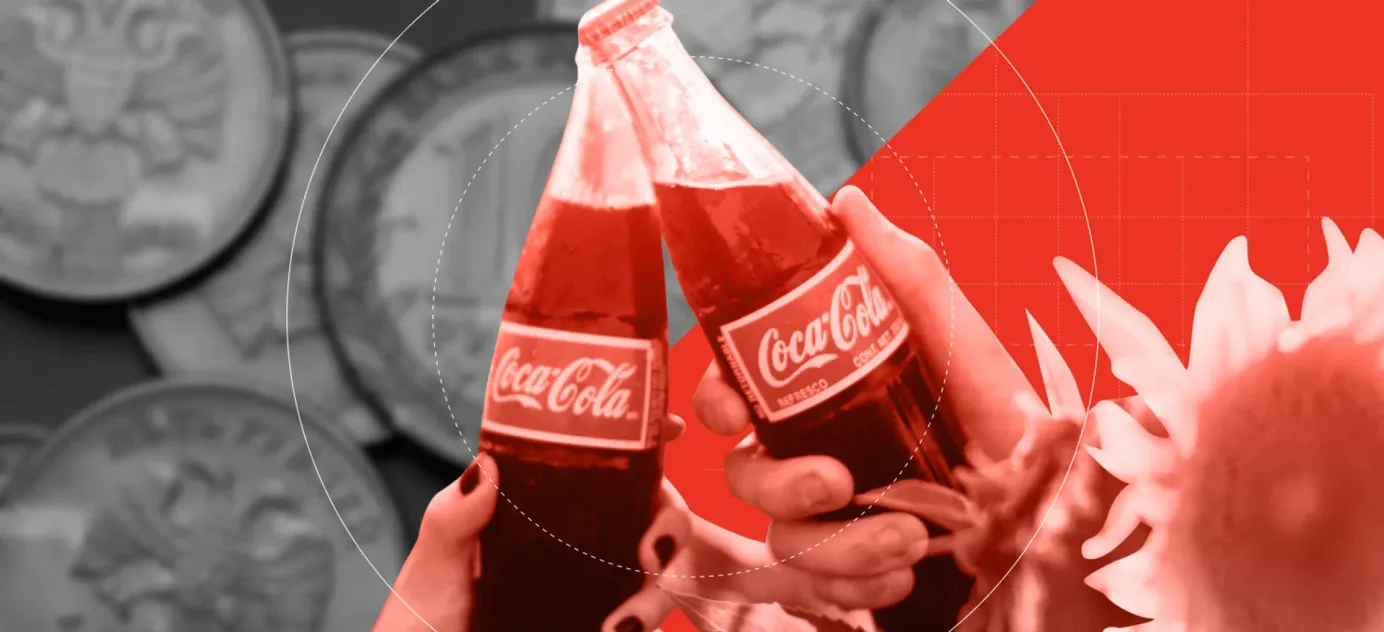
Coca-Cola quit Russia, but you can still find it on the country's shelves. How?
Coca-Cola announced it was leaving the Russian market back in March 2022 as part of the global response to the invasion of Ukraine. Coca-Cola HBC, the Greek-owned company that bottled and sold Coke in Russia, switched to a new brand, Dobry Cola. Yet the U.S. soft drink giant remains the second most popular soda brand in Russia, and Russian businessmen are now reaping billions from it.
How Coca-Cola is sold in Russia
Two weeks after the invasion of Ukraine, the U.S. Coca-Cola Company announced that it was ceasing operations in Russia, abandoning its investments and halting its promotional activities. That meant that officially, Coca-Cola, Sprite, Fanta and other brands would no longer be on sale. However, the American parent company has never been directly responsible for its production and sales in the Russian market. Russia’s 10 Coca-Cola plants were owned by an independent Greek-Swiss firm, the Coca-Cola Hellenic Bottling Company (HBC).
In August 2022, Coca-Cola HBC announced the sale of its remaining Coke stocks and stated its intent to continue business under a new name: Multon Partners, the name of a Russian juice company purchased by Coca-Cola HBC in 2005. Multon’s range included a Russian cola called Dobry Cola.
By Q1 of 2023, Dobry Cola had become the best-selling cola in Russia, capturing 34% of the market. That was the result of decades of established distribution networks, a $100 million marketing and advertising spend (according to Multon Partners’ 2022 reporting) and a 30% discount against the original American cola.
However, second place in the market went to the original U.S. Coca-Cola. Despite the closure of its Russian production lines and other problems, it still holds 14% of the market. And now, its sales in Russia make money not for Greek businessmen, but Russian billionaires.
Who is selling Coca-Cola in Russia?
All Coca-Cola sold in Russia is imported as of last fall. There are dozens of companies bringing the drinks into the country, including the UAE, Iran, Turkey, Azerbaijan and many other countries. Journalists have even found bottles of Coke imported from Taliban-held Afghanistan.
The Bell’s reporters calculated that suppliers issued more than 100 declarations of conformity for the import of original Coca-Cola drinks into Russia in 2022-23. This figure is based on records from Rosakkreditatsiya, the state agency that issues the declarations of conformity which are required for importing goods into Russia.
Several of these were serial declarations issued by the Foodmall company, which is registered on the territory of Moscow’s largest wholesale food market, Food City. A serial declaration enables Foodmall to import any volume from its designated supplier, which is in this case the Azerbaijan-based Coca-Cola Bottlers LTD.
The same bottler is also delivering cola to the Rostov region in southern Russia via Korzinka, a company specially created for this purpose. It was founded by the 32-year-old wife of the head of a large meat processing plant in Rostov. Another company, PVD Technologies, is importing cola from Iran.
In Vladivostok, a major port close to the Chinese border, a Chinese bottler supplies local distributor Digoods. Another Vladivostok-based company, Trade Group, filed a declaration to import barrels of cola, apparently for the hospitality industry.
Why the world should care
Coca-Cola’s fate in Russia is a good illustration of how the current combination of sanctions and “self-sanctioning” is unable to completely isolate Russia from the global economy. The Coca-Cola Company was able to improve its image in the eyes of clients and investors, albeit at the cost of lost profits. Meanwhile, Russian businessmen have gained more opportunities to earn from importing soda under the Coca-Cola brand name.




